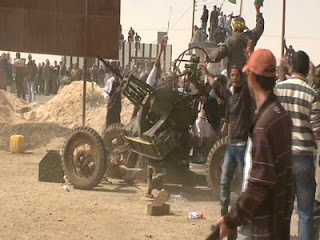Bank of America Merrill Lynch economists say the ending of benefits for the so-called "99ers"—those who have exceeded their normal benefit allotment and are on an emergency compensation program through the end of the year—will slow the economy even further. The term comes from a previous extension to 99 weeks of eligibility for benefits.
When the long-term unemployed hit the same point several months ago, Congress stepped in with an extension. But that may not come now.
"We do not expect them to get extended," BofAML economist Joshua Dennerlein wrote in a note to clients. "This will act as a hit to income, hurting consumption growth in the first half of the year."
More importantly, this "hit" comes at a time when BofAML thinks the economy—already battered by rising unemployment and a Depression-level housing market—is very fragile. Another shock, the bank argues, could send it into recession .
In fact, chances of the U.S. economy entering another recession, the firm says, are now 35 percent, about double from a forecast it issued during the spring. Recession is often defined as two consecutive quarters of negative gross domestic product growth.
"It would take a modest worsening in financial conditions, falling oil prices and rising unemployment. None of these are extreme scenarios," economist Michelle Meyer writes in a separate note. "We argue that after a series of sucker punches earlier this year, the economy is only one shock away from falling into recession."
The good news is that the recession likely would be "mild since the economy already is very lean," specifically citing the 8.8 million jobs sliced during the previous recession and only 1.8 million rehires.
Ominously, though, a recession could trigger a number of unexpected events, with Meyer specifically citing "a muni crisis" where state and local governments, which have been cutting costs aggressively, would face more intense pressure from a new recession that could lead to bond defaults. This is in part the scenario put forth from banking analyst Meredith Whitney, who has been widely reviled for her forecast of a wave of muni defaults.
Meyer said her economic team's "baseline"—or most probable—forecast is no recession. But growth will remain slow and "still feel like a recession to many."The forecast falls in line with others who believe a second full recession—rather than a double-dip—is on the way or in fact already here.
"It is evident that we will be going into another recession—I think at this point it's only a question of whether it has already begun—with the levels of output, employment and income all lower now than they were prior to the last contraction phase," Gluskin Sheff economist and strategist David Rosenberg said in a note.
Rosenberg said he has "pegged a U.S. recession as a virtual certainty" and warned investors to plan accordingly.
He recommends a mix of risk hedging—shorting low-quality and buying high-quality stocks —and using an income-equity distribution with low correlations to the stock market. He also backs high-yielding corporate debt from companies with solid balance sheet, gold and mining stocks, and commodities, particularly raw food and energy.
"The economy and risk assets typically hit a speed bump in a recession," he said. "That much is true, but investment ideas and opportunities within the market can still flourish even in a bear phase or a correction—cash should not have to be an option."
Investors were fleeing to safety during Thursday's market rout, pushing bond prices sharply higher and the stock market off more than 3 percent as talk spread of a looming recession. The Standard & Poor's 500 [.SPX 1200.07 --- UNCH
] officially entered correction phase of a 10 percent decline from its recent high, although it recovered somewhat later in the day.
"Price declines of 5 percent or more aren't reason enough to signal recession, as there have been eight times as many of these as there have been recessions since WW II," Sam Stovall, chief equity strategist at S&P, said in a note. "But unrelenting price declines that are accompanied by weaker-than-expected GDP, ISM (manufacturing) and jobs data add to existing concerns."
Those concerns are manifesting themselves in portfolios, where a return to diversification and stock picking is likely to occur after more than two years of a highly correlated market where asset classes and individual stocks all moved in unison.
"Our advice in the last couple of months has been really pushing the notion of diversification and rebalancing which sounds like plain old vanilla advice," Liz Ann Sonders, chief strategist at Charles Schwab, said in an interview. "Correlations are starting to come down. There's more differentiation now."
Sonders said she too worries about the economy but believes the U.S. is more likely to muddle through than hit an actual recession.
"On our most optimistic day we didn't see anything close to robust growth," said Sonders, who in previous interviews had speculated a return to a "Goldilocks" economy where growth was not too fast or not too slow. "No matter how you slice it, it's not a robust picture."















